Tomb 54
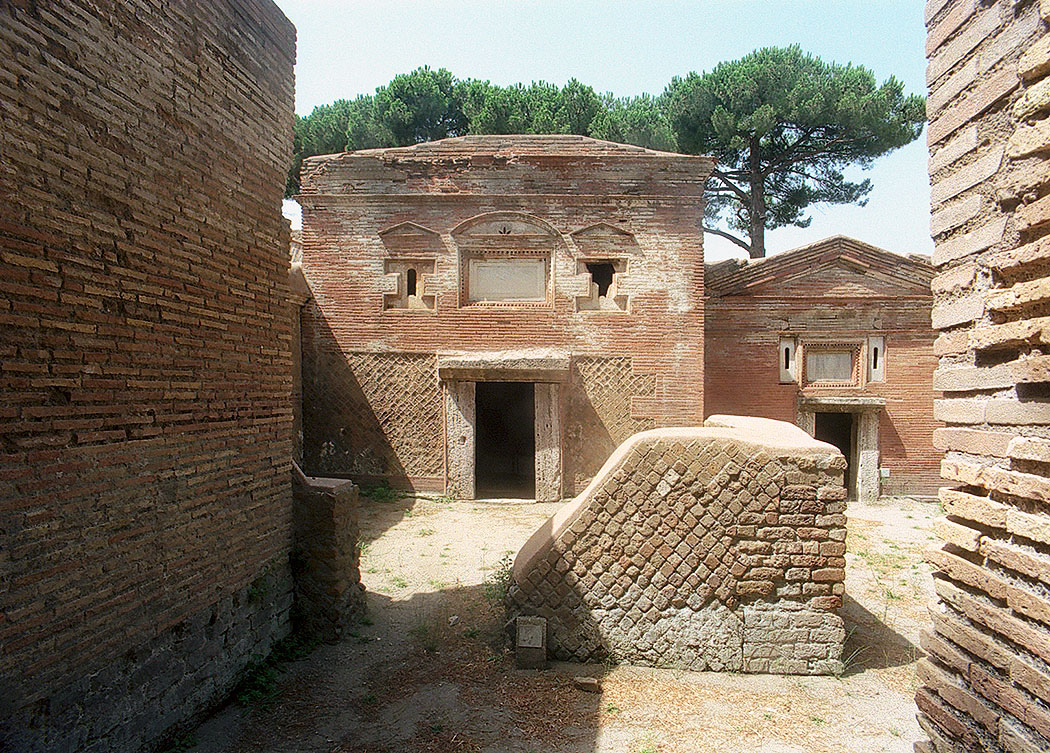
On the left side the side-wall of tomb 72.
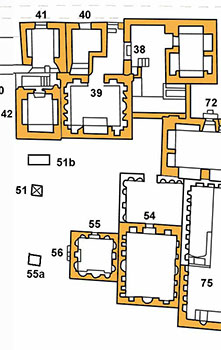
Tomb 54 consists of a burial chamber with an enclosure in front. The entrances of the enclosure as well as the burial chamber are oriented towards the Via Severiana. The enclosure was mainly occupied by a biclinium flanking the entrance of the burial chamber.
On the south side tomb 54 leans on tomb 75 and has its facade on one line with that grave. Later on tomb 72 has been built against tomb 54 and 72. The entrances remained accessible.
After the construction of tomb 38 the view on the main street as well as the passage to that street were completely gone.
Above the entrance of the burial chamber the following inscription was attached:
D(is) M(anibus)
ATTIA PSYCHE ET
C(aius) ATTIVS ALEXANDER LIB(erti?)
FECERVNT SIBI ET SVIS LIBERTIS
LIBERTABVSQVE POSTERISQVE EORUM
H(oc) M(onumentum) H(eredes) N(on) S(equetur) VENDENDI CAVSA
FIDEIQVE EORVM COMMISSAE
NEQVE FIDVCIARIVS INTROIT(um) HAB(eat)
IN FRONT(e) P(edes) XVIII IN AGR(o) P(edes) XXXVIII
Two freed slaves, Attia Psyche and C. Attius Alexander, (have erected this monument) for themselves and for the descendants, for their joint freed slaves, with their family. Also the use of the grave by anyone else besides the family was forbidden, not even when the grave was bought or by a guardian. The area measured 18 x 28 feet.
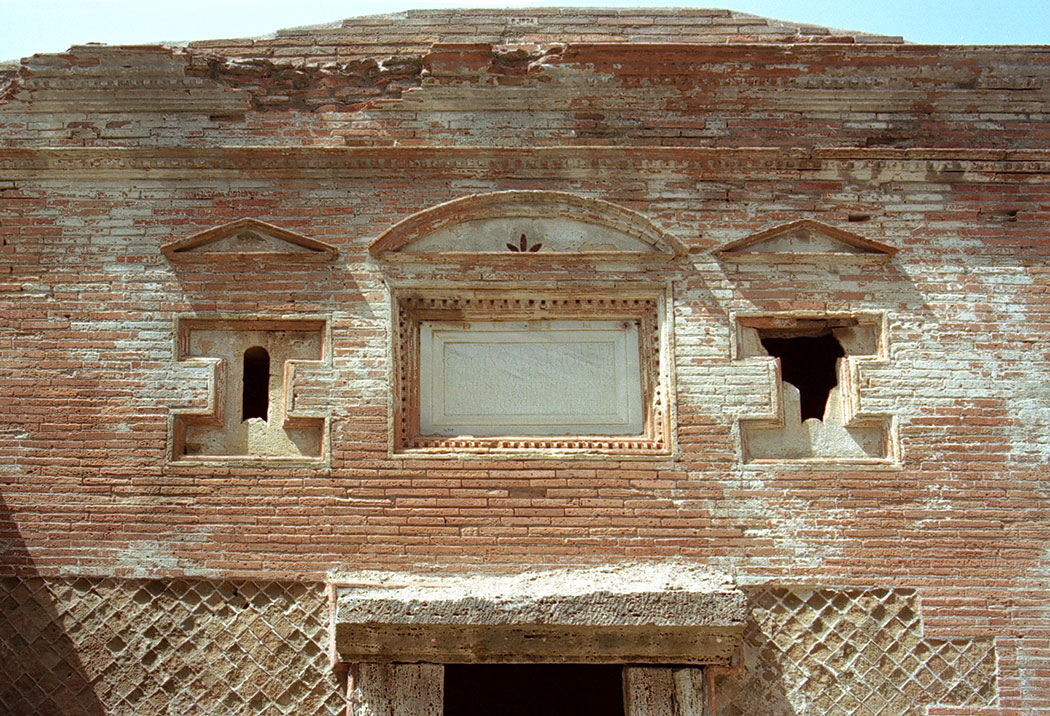
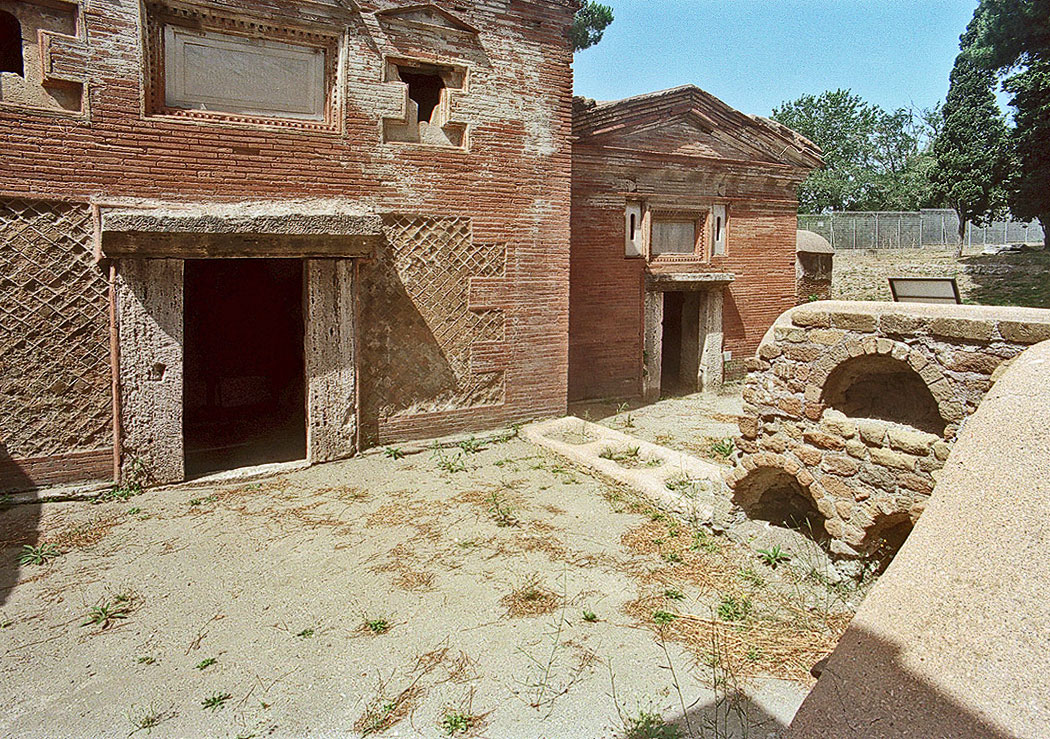
The biclinium in the enclosure can't hardly be seen anymore.
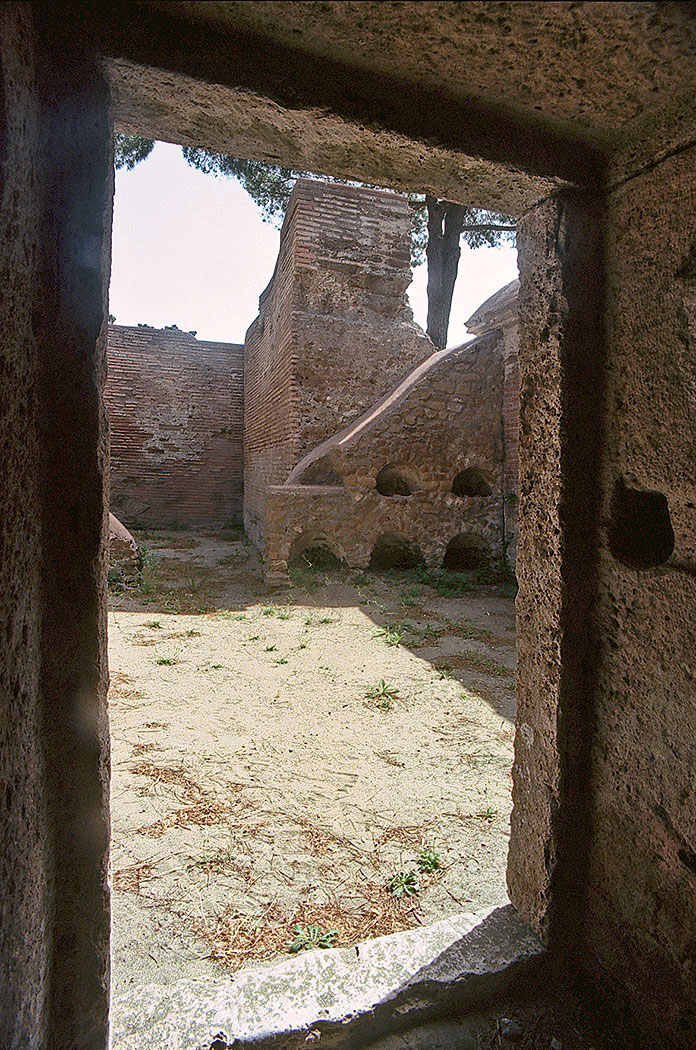
the burial chamber.
The walls of the enclosure were used for keeping urns for the ashes of the deceased.
The two biclinia can't be seen today.
The facade of the burial chamber has been built in small stones of tufa till the height of the entrance. Above the tufa (opus reticulatum) brick is used. This tomb is the only one in this necropolis with such a facade.
The inscription is flanked by two small windows which are cut out in a framework. Above the inscription as well as the windows is a brick decoration.
The well preserved burial chamber has been organized for a mixed form of burials. The walls have small rectangular niches on both sides of a large central niche.
The organisation of the left wall, however, differs strongly from the other walls and dates probably from a time of reuse. The once pretty decoration of the grave is almost completely lost.
The floor of the burial chamber had, like the path between the biclinium of the enclosure, a black-and-white mosaic.
In front of the right wall of the burial chamber a stripe with a name was placed in the mosaic, probably the name of the man who found his "place of no fear" here:
T(ito) IVLIO ARGIO
In the walls some stamped bricks have been found, so that we can date tomb 54 to 123 AD.
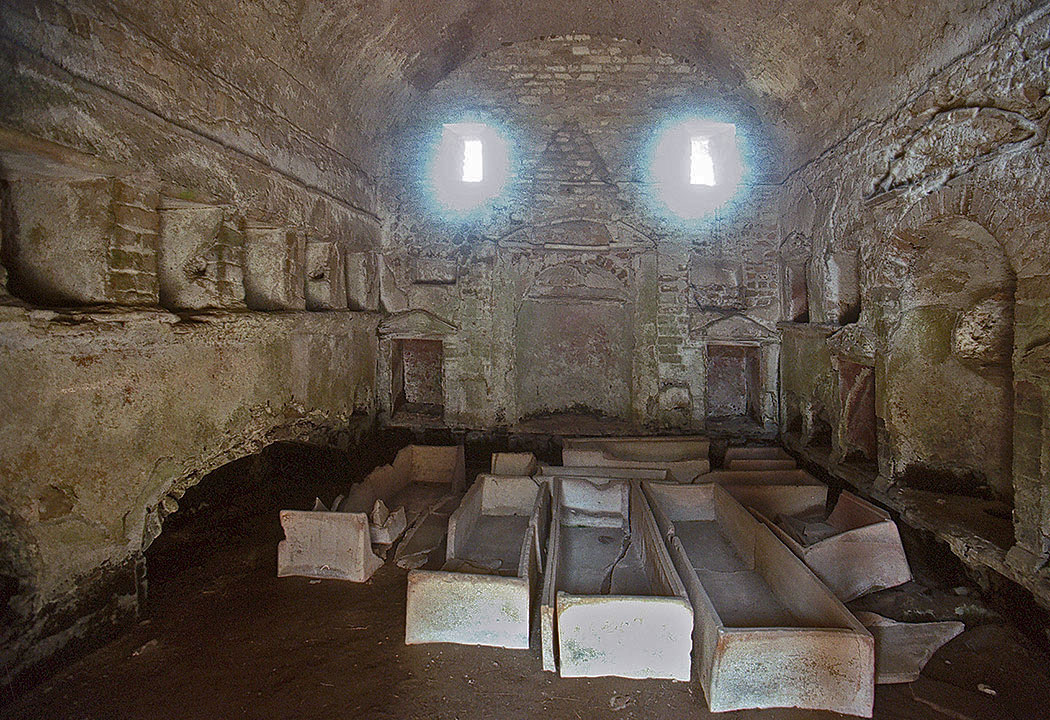
- Sources
- Russel Meigs - Roman Ostia, At the Clarendon Press 1973
- Guido Calza - Necropoli nell'Isola Sacra'(1940)
- Dr. Jan Theo Bakker.
- Hilding Thylander - Inscriptions du port d'Ostie (Lund C W K Gleerup 1952).
- Ida Baldassarre, Irene Bragantini, Chiara Morselli and Franc Taglietti - Necropoli di Porto, Isola Sacra (Roma 1996).
- Notes
- 1:Thylander ascribes the inscription to tomb 56 and concludes that Calza exchanged the inscription of tomb 54 with 56. He did not report on what ground. Baldassarre remains quit about this issue. Because of the measurements of the grave mentioned in the inscription and the physical nature of both tombs we must at least give Calza the benefit of the doubt. (note author) - Guido Calza: Necropoli Nell’Isola Sacra 1940; Thylander: Inscription du port d’Ostie
Waardeert u ons werk?
Wordt lid van Roman Ports en ontvang het boek of doe een donatie!
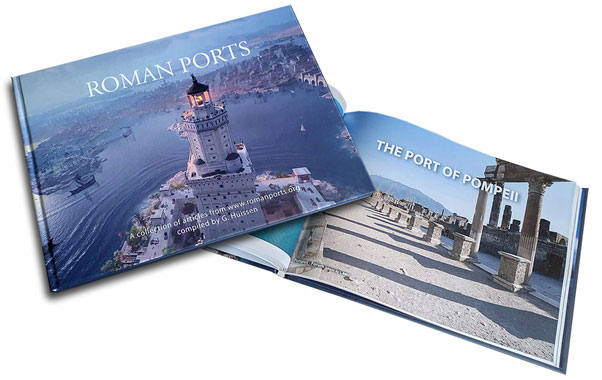 Wordt lid en steun ons
Wordt lid en steun ons
Isola Sacra Index (N)

Speciale sectie over de Romeinse begraafplaats van Portus (Engels)....
Lees meer...De teruggevonden vloot van Pisa

In 1998 werd bij toeval een ongelooflijk archeologisch erfgoed ontdekt in de buurt van het station Pisa San Rossore....
Lees meer...Leptiminus
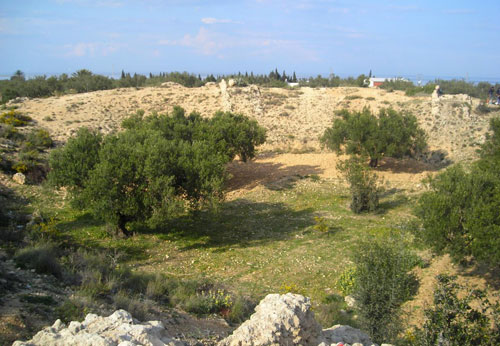
Op de plaats van het huidige Lamta aan de oostkust van Tunesië lag al in de oudheid een havenstad met de naam Leptis Minor ....
Lees meer...Romeins Zeehandelsrecht

Het Romeinse recht is het fraaiste monument dat Rome aan West-Europa heeft nagelaten....
Lees meer...Sullecthum (Salakta)

In de Sahel, in de Tunesische provincie Madhia vinden we aan zee het kleine stadje Salakta....
Lees meer...
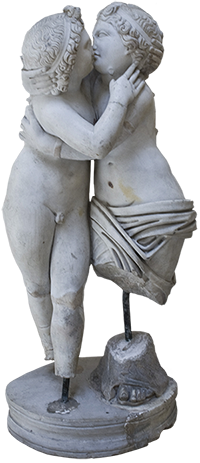 We are committed to providing versions of our articles and interviews in several languages, but our first language is English.
We are committed to providing versions of our articles and interviews in several languages, but our first language is English.